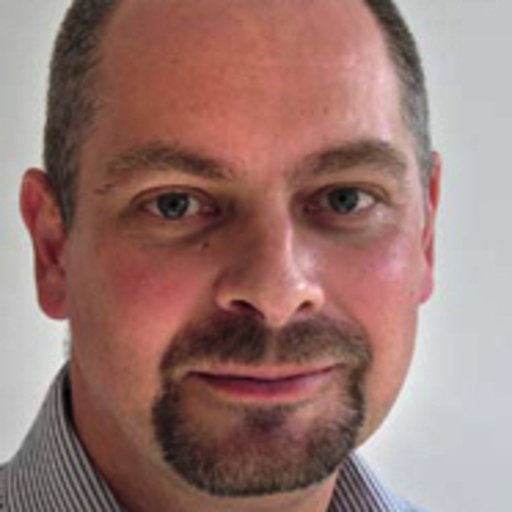
Two years ago, my predecessor Will Clark in his end-of-year message pointed out that, “Sustainable healthcare isn’t the next big thing, as we have so often referred to it; it is now THE big thing.” His prediction was definitively confirmed this year, with the landmark decision at the 77th World Health Assembly in Geneva in May to pass a resolution addressing the critical intersection of climate change and health. Then, in October, the month I became Health Care Without Harm (HCWH) Europe’s new Executive Director, the Lancet Countdown’s 2024 report on health and climate change pointed out that: “The engagement of individuals, corporations, scientists, and international organisations with climate change and health is growing, raising hopes that a healthy, prosperous future could still be within reach”.
However, the Lancet report, the most comprehensive evidence-based assessment of the links between health and climate change, also concluded: “Health systems themselves, although essential to protect people's health, are also increasingly contributing to the problem. Greenhouse gas emissions from health care have increased by 36% since 2016, making health systems increasingly unprepared to operate in a net zero emissions future and pushing health care further from its guiding principle of doing no harm”. We are, therefore, at a moment when the importance of building sustainable healthcare systems and facilities worldwide is recognized as never before, whilst the challenge of meeting that ambition is growing ever greater.
I’m proud, therefore, to be able to report to HCWH Europe’s members, partners and supporters that 2024 was an extraordinary year of achievement for the organisation, as it continues its leadership role in establishing sustainable healthcare policy and practice across the continent. Our flagship event, CleanMed Europe, saw its highest ever attendance in June, and this year we also held successful new national CleanMed conferences in Germany (Berlin in May) and France (Lille in September). Our 2024 European Healthcare Climate Summit focused on exploring innovative, practical solutions to build climate-resilient, net-zero healthcare, and attracted a record number of attendees.
HCWH Europe’s membership grew by an encouraging 10%, and we now have 218 members (representing nearly 8,000 healthcare facilities with 1.8 million employees) in 28 countries across Europe. Fourteen of them became Executive Committee members in 2024, electing a new Governing Board to guide and oversee the strategic development of the organisation. That will be important in 2025 as we embark on a new strategic planning exercise which will define and focus HCWH Europe’s work for the coming years. This year we published a new EU Manifesto, setting out our policy objectives for European Parliamentarians. Our future Strategy will also be closely aligned with Health Care Without Harm’s new International Strategy – the first to include all three HCWH entities and our strategic partners – which was finalised and published this year, as was our shared co-branded website.
The focus of our new Strategy will be on the increasing impact HCWH Europe wants to make in sustainable healthcare policy and practice. The last 12 months have seen tremendous growth in the scale and reach of existing programmes, and the launching of important new initiatives, across our three strategic pillars of Climate-smart Healthcare, Circular Healthcare and Safer Pharmaceuticals. Some of the highlights are as follows:
Climate-smart Healthcare
- We are now partnering with national health authorities in Ireland and Belgium to generate national climate footprints and decarbonisation roadmaps for their healthcare systems using the methodology Designing a net zero roadmap for healthcare, developed within our Operation Zero initiative.
- In June, we launched MOUNTADAPT. This Horizon Europe project gathers expertise from 27 partners - including healthcare facilities, public authorities, innovators and researchers - to strengthen the resilience of health systems to climate change in European mountain areas.
- In December, the Community of Action for the Reduction of Emissions (C.A.R.E.) project was launched, which will build an international community of practice involving members of our GGHH network to accelerate the healthcare sector’s transition to zero emissions.
Our LIFE RESYSTAL project developed a set of innovative tools and resources to expand the European healthcare sector’s resilience to climate change, including our flagship publication on climate resilience in healthcare: the Practical Guide for Building Climate-Resilient Health Systems.
Circular Healthcare
- In December, after extensive work with hospitals in France, Denmark and the UK, we launched the Born Green Generation Movement, aiming to unite hospitals, professionals and parents to protect future generations from harmful plastics and phase out toxic chemicals in maternity, neonatal and paediatric wards. I invite you to consider signing ‘The Pledge’ to transform healthcare in this way!
- A key policy objective for HCWH in 2024 was to remove the exclusion of the healthcare sector from targets within the negotiated International Plastics Treaty, which was intended to be finalised at the INC-5 in South Korea in November-December. Although negotiations failed to deliver a new Treaty – and will continue in 2025 – the latest draft is encouraging and does remove the exception.
Safer Pharmaceuticals
- As part of our Antimicrobial Resistance (AMR) EDUcare project, we launched a comprehensive report identifying critical gaps and needs in AMR education in Greece, Hungary, Italy, Lithuania, Portugal and Spain.
- More generally, the open discussion with industry, academia, civil society and policymakers on how to make the pharmaceutical supply chain greener and more transparent continued, including a highly-successful workshop held with nearly 100 participants from all of those sectors.
- We contributed to discussions with participants at the United Nations General Assembly High-Level Meeting on Antimicrobial Resistance (AMR) in September.
We can, therefore, be immensely proud of these achievements in 2024. Whilst HCWH Europe will begin 2025 with some financial challenges, I am confident we will remain in the years ahead at the forefront of building ‘THE big thing’ that is sustainable healthcare - with the support of our members, funders and supporters. My thanks for your interest, commitment and involvement in this transformational work!
Yours,
Mark Wilson
Executive Director